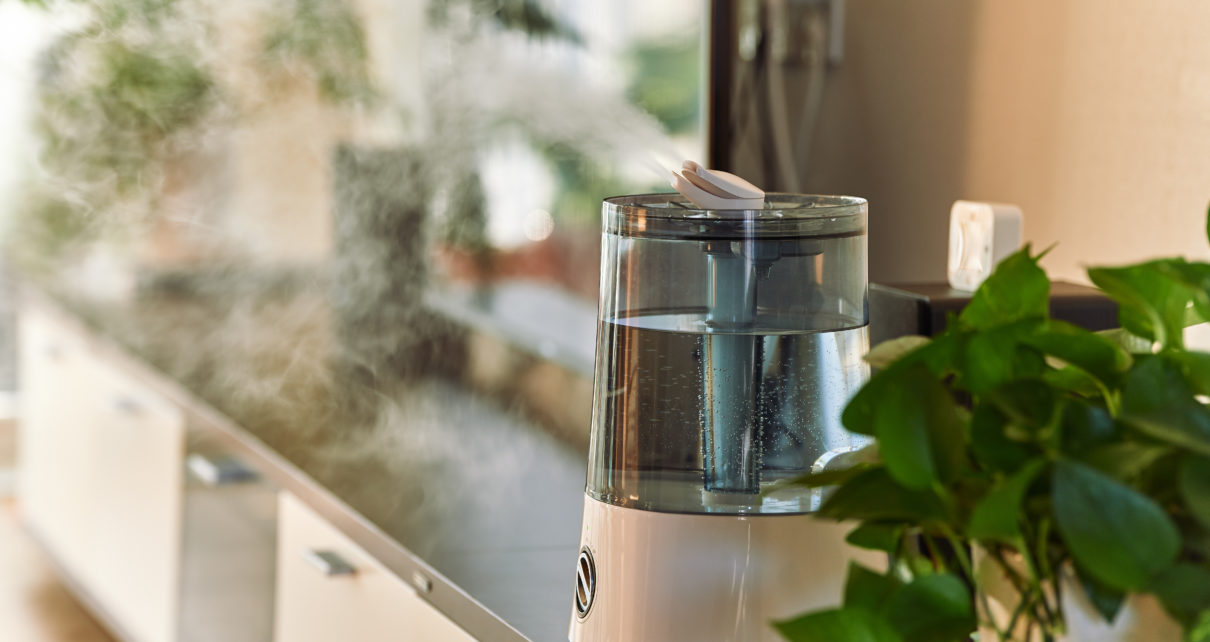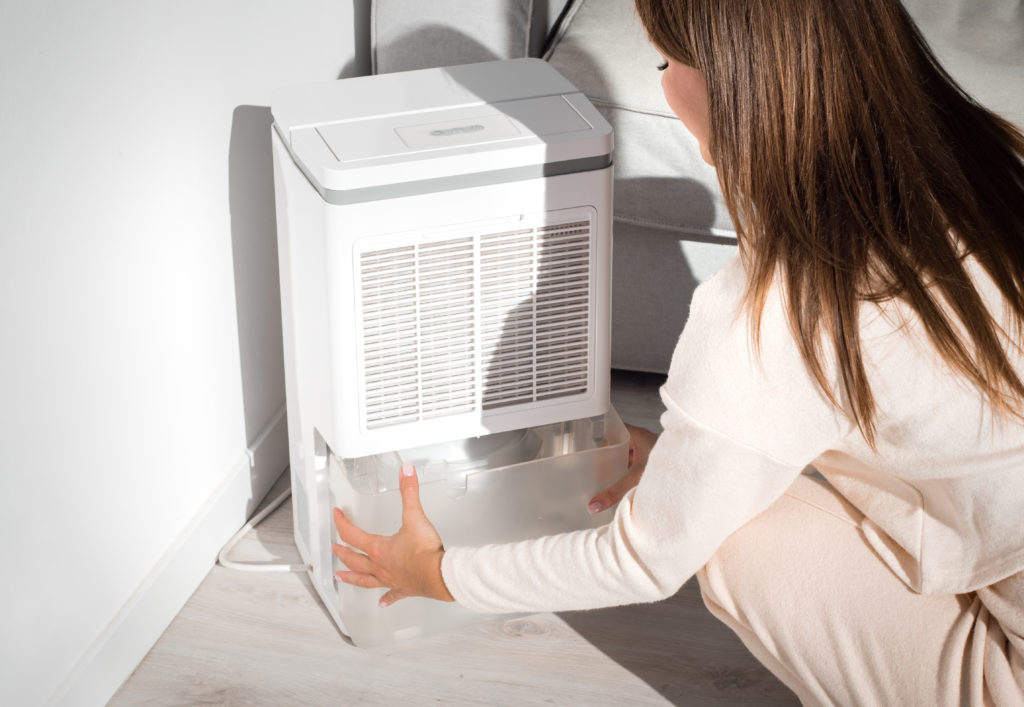
Many people fail to think about the quality of the air in their homes. Poor indoor air quality can contribute to headaches, fatigue, respiratory problems, and even heart disease. Fortunately, there are plenty of home air quality products on the markets like humidifiers that address your specific needs. But what does a humidifier do to improve your day to day? We break down the benefits here.
Benefits of Using a Home Humidifier
As you might reasonably assume from the name, a humidifier is an appliance that increases the humidity in the air. Humidity refers to the amount of water vapor in the air.
When the humidity in your home is too high, it can encourage mold and mildew growth and may even damage furniture, wallpaper, and flooring. Low humidity, however, can be problematic as well. When the humidity in your home is low, it can increase static electricity and cause skin and respiratory problems like dry skin, scratchy throat, and chapped lips. It can also increase your susceptibility to colds and other respiratory concerns.
A humidifier releases steam or water vapor into the air in order to increase indoor humidity. Some humidifiers monitor indoor humidity and automatically adjust while others merely have different fan settings.
How Does a Humidifier Work?
There are several different types of humidifier. While they all accomplish the same goal, they do so through the use of different technologies.
Cool mist humidifiers release cool vapor mist into the air. The water typically passes through a filter to remove airborne impurities and vapor is produced through means that don’t involve heat. The most common type is the evaporative humidifier. Vaporizers and ultrasonic humidifiers offer both cool or warm mist.
Warm mist humidifiers work best in cold climates. They heat the water to create vapor but then cool it before releasing it into the air which increases purity and reduces the risk of bacterial contamination. Vaporizers are the most common type, though ultrasonic humidifiers come in warm mist models as well.
A humidifier can help reduce the spread of germs because it restricts the pathogen’s ability to be spread through airborne respiratory droplets. Humidifiers help prevent dry, itchy, and irritated skin and may help relieve symptoms of asthma and allergies.
What Are the Pros and Cons?
Though humidifiers certainly have their benefits, they’re not the ideal choice for every situation. If the humidity in your home is already high, there’s simply no need for a humidifier and using one could lead to problems with mold, mildew, and respiratory concerns. On a similar note, using a humidifier incorrectly can contribute to these problems.
On the other hand, humidifiers can be especially beneficial in cooler temperatures, in a baby’s nursery, or in your bedroom.
Babies commonly struggle with congestion in the nasal passages and their immune systems are not fully developed. Increasing the humidity in the nursery can help loosen mucus and could reduce their susceptibility to airborne illnesses. In a similar vein, using a humidifier in your bedroom or elsewhere in your house could help if you’re sick or suffer from asthma or allergies.
Tips for Using a Humidifier Safely

Proper humidifier maintenance is absolutely essential. If you don’t empty, clean, and dry the humidifier often it could harbor bacteria and other harmful organisms, increasing your risk for illness. You shouldn’t just top off the humidifier as needed – you should empty the reservoir, clean it well, then let it air dry completely before filling it again.
You should also regularly check the filters used in the humidifier. If they’re doing their job, the filter will eventually become clogged and you’ll need to wash or replace it, depending what type of filter it is. It’s also wise to check the various parts of the humidifier for hard water deposits that might impede its function.
Things to Look for in a Humidifier
Shopping for a humidifier can be overwhelming simply because there are so many different models to choose from. Before you shop, it’s wise to determine what features you’re looking for in a humidifier.
Here are a few things to consider when shopping for a humidifier:
Room Size
Like many home air quality appliances, humidifiers come in different sizes. Small humidifiers are usually fine for the nursery or bedroom but a larger humidifier may be required for open spaces or whole-home use.
Safety
Different types of humidifier are more appropriate for certain uses. If you’re using a humidifier in a baby or child’s room, opt for a cool mist rather than a warm mist model, or at least one that doesn’t use heat to create steam.
Maintenance
Humidifiers with larger reservoirs don’t need to be filled as often but you’ll still need to clean it. Make sure the humidifier is easy to disassemble and reassemble.
Filters
Many humidifiers use filters to control the level of moisture being added to the air. Check to see whether the humidifier has a washable filter or one that needs to be replaced from time to time.
All humidifiers are not created equal, so it’s important to consider your needs as well as the size of the space before making your choice. Keep the factors above in mind when shopping to rule out the models that won’t fulfill your needs and to find the one that will.
Bottom Line
Whether you’re concerned about allergies, airborne pollutants, or skin problems related to low humidity, a home humidifier could help. Humidifiers are simple to use and generally pretty affordable.
If what you’ve learned here leads you to believe that a humidifier might be the right choice for you, check out some of our guides to finding the right humidifier.
